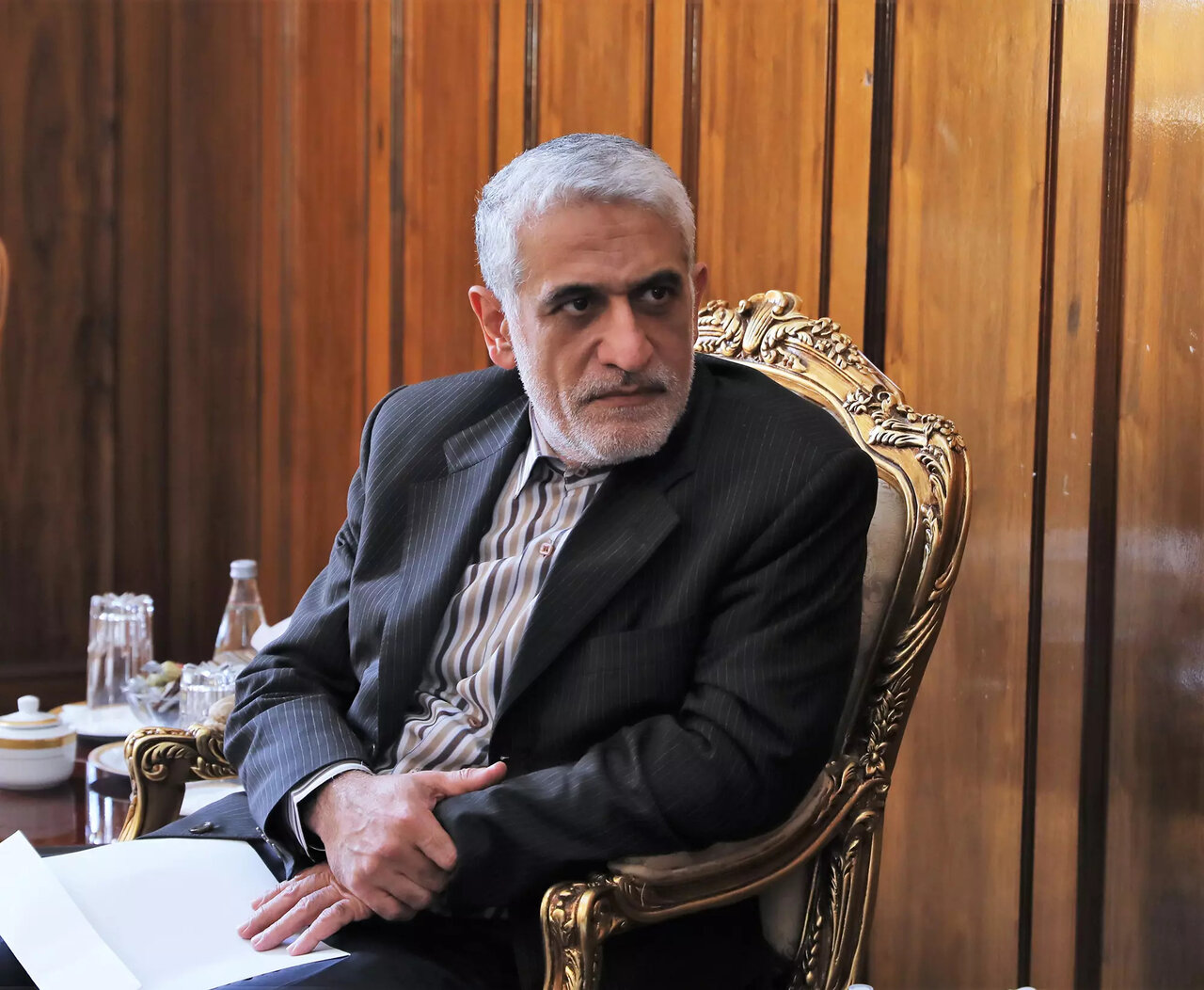Iran UN envoy reaffirms right to domestic enrichment

TEHRAN – Iran’s Permanent Representative to the United Nations, Ambassador Amir-Saeid Iravani, has emphatically restated Tehran’s non-negotiable position that uranium enrichment for its peaceful nuclear program must take place on Iranian soil.
In remarks made to Al-Monitor in an interview published Thursday, Ambassador Iravani declared, "Iran continues to insist that enrichment must take place on its own soil."
He clarified that while regional cooperation, potentially including a consortium, could complement Iran's nuclear activities, it would never serve as a substitute for Iran's sovereign right to maintain domestic production capabilities.
These comments come on the heels of a halt in fighting that ended the Israeli regime’s 12-day war on Iran, which raged from June 13 to 24.
Operating with direct U.S. coordination and support, Tel Aviv unleashed hundreds of airstrikes across Iran, martyring hundreds of citizens, as well as senior IRGC commanders and leading nuclear scientists.
In a grave escalation on June 22, the United States itself entered Israel’s campaign, dispatching six B-2 Spirit stealth bombers armed with fourteen 13,600 kg GBU-57 “Massive Ordnance Penetrator” bunker-busters, plus 24 Tomahawk cruise missiles fired from a nuclear submarine, to attack Iran’s civilian nuclear facilities at Fordow, Natanz, and Isfahan.
Iran had engaged in five successive rounds of indirect nuclear negotiations with Washington, with a sixth session scheduled for June 15 in Muscat. Instead, the Islamic Republic was confronted with a war forcibly imposed on its soil.
Elsewhere in his interview, Ambassador Iravani underscored that Iran remains committed to peaceful resolution and its obligations under the Nuclear Non-Proliferation Treaty (NPT), seeking only the rights accorded to all responsible members.
"We seek neither more nor less than the rights accorded to every other NPT member," he stated.
"Under the NPT, every state is entitled to conduct research, to produce, and to make peaceful use of nuclear energy. Accordingly, we intend to exercise all three pillars of that right, particularly the right to domestic production."
He reiterated Iran's openness to cooperation with regional countries on reactor safety and fuel supply within a consortium framework, but stressed this would be supplementary to Iran's national program.
Regarding potential confidence-building measures within a future agreement, Iravani indicated flexibility on managing stockpiles of enriched uranium, mirroring arrangements made under the JCPOA.
"If an agreement is reached, this issue could also be resolvable," he said, outlining options such as transferring material out of Iran in exchange for yellowcake or storing it domestically under the seal of the International Atomic Energy Agency (IAEA), contingent on final negotiated terms.
The Ambassador also addressed Iran's recent parliamentary legislation mandating a suspension of cooperation with the IAEA.
He explained this legally binding move was a direct response to the IAEA's failure to fulfill its obligations, particularly its silence on the illegal US-Israeli attacks on Iran's nuclear facilities.
"If the IAEA acts in a non-discriminatory manner — by condemning the attacks carried out by the United States and Israel against Iran’s nuclear sites and facilities, referring the matter to the Security Council, and by securing the right of Iran under the NPT — then we would be prepared to reconsider the implementation of the law," Iravani stated, describing the suspension as a message demanding accountability, not a withdrawal from the NPT.
On broader regional integration and potential investments in Iran after a possible deal, Iravani expressed openness.
"Yes, if an agreement is reached, we would place no restrictions on the presence of the United States or other Western countries investing in Iran’s energy sector," he affirmed.
However, he firmly rejected any notion of such investment being offered in exchange for Iran relinquishing its enrichment rights.
Finally, Ambassador Iravani categorically ruled out any limitations on Iran's ballistic missile program, highlighting its critical role as a strategic deterrent.
He pointed to the recent Israeli belligerence as proof of its necessity: "The recent aggression demonstrated clearly that without Iran’s military capabilities, the other side would never have been compelled to request a ceasefire."
He argued that Iran's act of self-defense inflicted significant costs, contributing to international pressure for a ceasefire, and concluded, "Therefore, Iran will never agree to relinquish such an effective strategic lever, nor will it allow itself to be disarmed in the face of potential future attacks."
